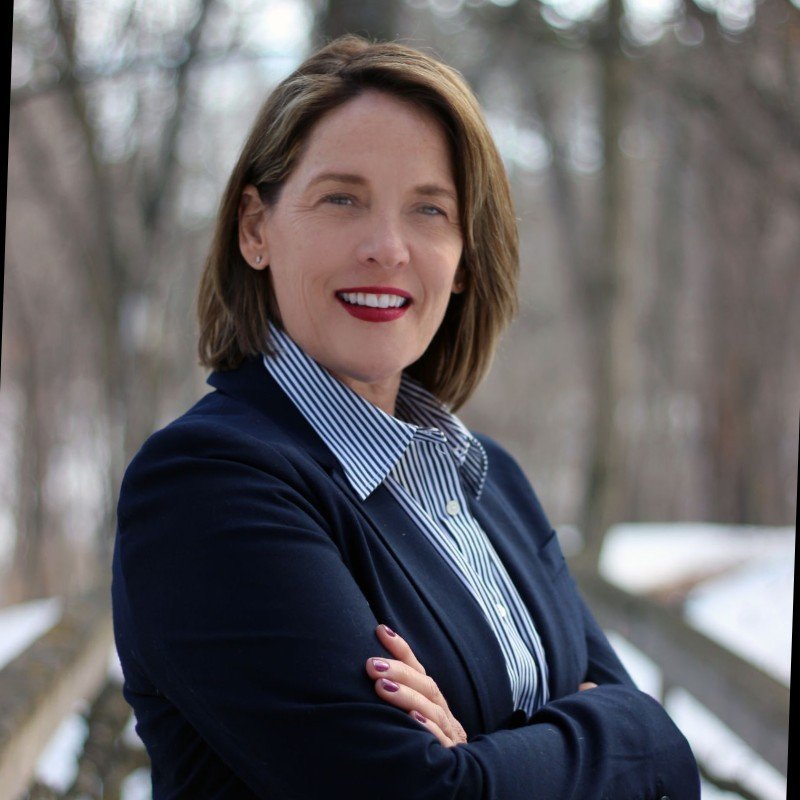Welcome to the Minnesota Center for Employee Ownership Newsroom, your trusted source for all things press related for MNCEO. Use the links below to find exactly what you’re looking for, including contact information, press releases, white papers, media kits, logos, multimedia assets, and answers to frequently asked questions.

MNCEO Mission
The Minnesota Center for Employee Ownership (MNCEO) is a 501 (c)(3) nonprofit organization dedicated to providing free and unbiased information and resources to business owners and their advisors on the benefits of employee ownership throughout Minnesota. Established in 2020, MNCEO is part of a national network of state centers for employee ownership created by the Employee Ownership Expansion Network (EOX), which is committed to closing the wealth gap for all employees.
Looking to feature us?
Here's all that you’ll need:

Media Kit
Our comprehensive media kit is designed to help journalists readily obtain story ideas, background information, multimedia assets, and answers to frequently asked questions about MNCEO. Visit the links below to learn more:
Company History
Logos & Branding Guidelines
Executive Director Bio & Headshot
Employee Stock Ownership Plan FAQs
Employee Ownership Trust FAQs
Worker-Owned Cooperatives FAQs
2021 MNCEO Annual Report
Click below to download our media kit.
Kirsten Kennedy Biography
Kirsten Kennedy is the Executive Director of MNCEO.
Contact Kirsten at 1-800-320-9284 or kkennedy@mnceo.org

MNCEO Brand Guidelines
MNCEO's logo is provided for use by accredited media outlets only. They are not to be altered. For additional high-resolution downloads and information on the use of MNCEO's logo, please contact 1-800-320-9284 or kkennedy@mnceo.org.
Want Additional Information?
MNCEO’s media relations team is always available to respond to your questions and help you with your news gathering efforts. To request a media interview, please call our media help line at 1-800-320-9284. If your request is not urgent, you may also contact us using the form below. A member of our media relations team will respond to your inquiry within 24 hours.

Press Releases
Media Coverage
Listen in as our Nexus Community Partners chat with the KMOJ Morning Crew all about worker owned cooperatives.
Interview with Split Rock Studios' Vice President of Finance and Human Resources Bee Thao Vang on Kmoj
Panel with SBDC, employee ownership and exit planner expertise. Took place during the BRE +BST course in St. Paul. November 2022
Be sure to take a listen to Sue’s interview that aired on KMOJ Morning Show in celebration of Employee Ownership Month. It was great hearing her thoughts about Employee Ownership Month and what it means as an employee-owned business!
In this podcast, Poised for Exit, Sue Crockett is interviewed regarding MNCEO’s new transition planning online course. This course teaches the basics of what transition planning is, how to start, who's involved and what to do next.
Bret Keisling is joined by Sue Crockett, executive director of the Minnesota Center for Employee Ownership (MNCEO), who discusses the founding of MNCEO by the Employee Ownership Expansion Network (EOX), its tri-fold approach to growing employee ownership through business owners, EO professionals, and economic developers, and all the ways they help spread the EO message.
During the past few years, it has become almost impossible to read anything about corporate America or public investing without hearing about a company or investment fund’s Environmental, Social and Corporate Governance (ESG) factors. ESG factors are those that allow investors and consumers to better understand how a company “behaves.”
When it comes to succession planning, most business owners probably realize there are many important factors at play. But what exactly do they need to address during the process, and what questions must they answer to execute a successful transition?
Kurt Manufacturing is 100% employee owned and operating over 500,000 square feet of manufacturing facilities, Kurt is positioned to be a leading employer for many years to come. Kurt’s 500 employees are located in Minnesota, Nebraska and Colorado and own 100% of their company. Because Kurt is an ESOP company, employees control their destiny and can achieve more by working as a team.
Employee ownership stories: Creating an ESOP, with Executive Director Sue Crockett and Ulland Brothers CFO, Tiffany M. Sathre.
When it comes to choosing an ownership transition strategy, owners of closely held businesses have a lot to think about. What transition options are available? And which of these options are a good fit for the goals of both the owner and the company? Clear and cogent answers to these questions can be elusive.
Corporate Governance is the process of allocating authority and responsibility among the company’s shareholders, board of directors and management. Many privately-owned companies have one shareholder who typically wears many hats — shareholder, director (usually the only one) and the CEO. There really is no question who runs these companies.

White Papers
Forward-thinking business owners want to create a succession plan that preserves their legacy and benefits the organization. Understanding employee stock ownership plans, ESOPs, and how they can impact a business, the employees and a community can be a perfect option for savvy leaders to explore.
Looking for a quick bird’s eye view of Employee Ownership resources throughout Minnesota? Check out this article written by Minnesota Chamber of Commerce business owners looking for business succession support.
Featured in the Minnesota Society of CPA's September Footnote magazine, Sue Crockett explains the upcoming fate for many baby boomer owned businesses.
While many businesses in the next two decades may pass to the next generation, a large portion of them will be sold — many of them to an Employee Stock Ownership Plan, or ESOP. How do you know if an ESOP is a good option for your company?
An Employee Ownership Trust (EOT) exists to benefit both current and future employees. With looser ties to the Internal Revenue Code and U.S. Department of Labor regulations, forming an EOT is likely to be less costly than an ESOP. Read on to read more.
Read this story to hear how Kelso, a lawyer and economist, set out to bring employee ownership to America.

































